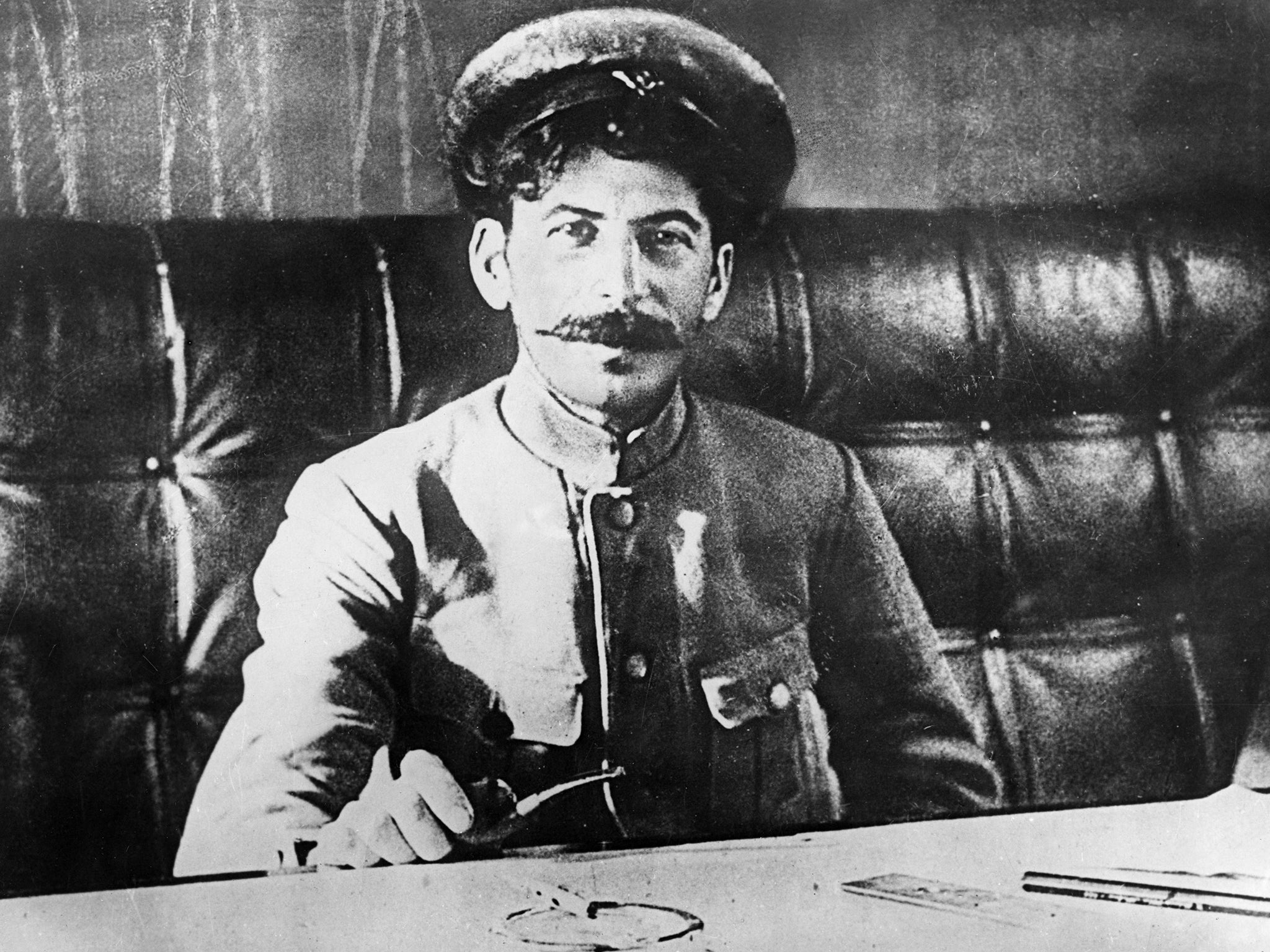Stalin: Paradoxes of Power 1878-1928 by Stephen Kotkin, book review: How did his youth result in one of history’s greatest tragedies?
This book, the first volume of three, tends to history rather than biography

Ioseb Jughashvili – known to us as Joseph Stalin – appears and disappears in this book like a mischievous imp as he morphs into Koba the Avenger and finally Stalin: Man of Steel. His earlier nicknames – Poxy and Crimped, owing to smallpox scars and a limp – reflect the hard knocks of childhood.
Young Soso, the diminutive of Ioseb, was probably beaten as a child, but Stephen Kotkin maintains “too much” has been made of the violence in his early life. Unlike young Ivan the Terrible, a budding psychopath who tortured animals, Soso was a “bookworm” with “a sweet alto singing voice”. Kotkin argues that the adult dictator was more the product of straitjacket ideology than childhood trauma.
This book, the first volume of three, tends to history rather than biography. Kotkin presents the period with the semi-populist skill of a documentary maker. Assisted by a superb collection of photographs, Kotkin peppers his narratives with attention-grabbing statistics and anecdotes. He shows us a tsarist autocracy riding a tiger of unrest: “Between 1905 and 1910 more than 16,000 tsarist officials would be killed or wounded by terrorist-revolutionaries.” The reasons for revolutionary anger are many. A miners’ strike in the Siberian gold fields, triggered by “rancid horse penises sold as meat at the company store”, ends when soldiers massacre the peaceful strikers.
According to Kotkin, “revolutions are also signs of decay and breakdown”. The October Revolution was both a great historical moment and a damp squib. In reality, the epic storming of the Winter Palace was a matter of climbing “unopposed through unlocked doors or windows”. The revolutionaries immediately liberated “the storeyed wine cellars”.
The Bolsheviks inherited a disintegrating empire of “104 nationalities speaking 146 languages” still at war with the Central Powers. But their most intractable problem was neither war nor ethnic diversity, but industrialising a society with a peasant majority numbering 100 million out of 130 million. Stalin’s solution was one of history’s greatest tragedies.
The book, inevitably, contains an enormous cast of historical figures. At his best, Kotkin portrays these characters with cinematic flare. Baron Roman von Ungern-Sternberg, a “would-be restorer” of Ghengis Khan’s Mongol empire, enters the stage like an extra from Apocalypse Now. Then rides unclothed into well-deserved oblivion, clanking with “numerous Mongolian charms and talismans” on his naked chest.
This otherwise excellent book is marred by its conclusion. In a final coda, “If Stalin had died”, Kotkin plays “what-if-history” – a dangerous game for any historian. He suggests that the horrors of Stalin’s forced collectivisation of agriculture could have been alleviated by “market systems” which are “fully compatible with fast-paced industrialisation”.
Worryingly, Kotkin uses fascist Italy as an example of “private capital and dictatorship” being “compatible”. He quickly adds, however: “None of this is meant to uphold Italian fascism in any way as a model.” But Kotkin fails to point out that Mussolini’s industrialists provided tanks – namely, the Fiat-Ansaldo 3.5 ton – that were not only permeable to bullets, but, on occasion, succumbed to Ethiopians throwing stones. A few years later, sturdier Red Army T-34s – mass produced in Soviet factories – rolled into Berlin. The inevitable triumph of marketisation remains unproven.
The big ‘what-if’ is whether a Russia without Stalin would have defeated Nazi Germany. I hope the answer is yes and that Kotkin proves it in his next two volumes.
One final footnote: Spiridon Putin, Vladimir’s grandfather, was Lenin’s cook.
Subscribe to Independent Premium to bookmark this article
Want to bookmark your favourite articles and stories to read or reference later? Start your Independent Premium subscription today.

Join our commenting forum
Join thought-provoking conversations, follow other Independent readers and see their replies